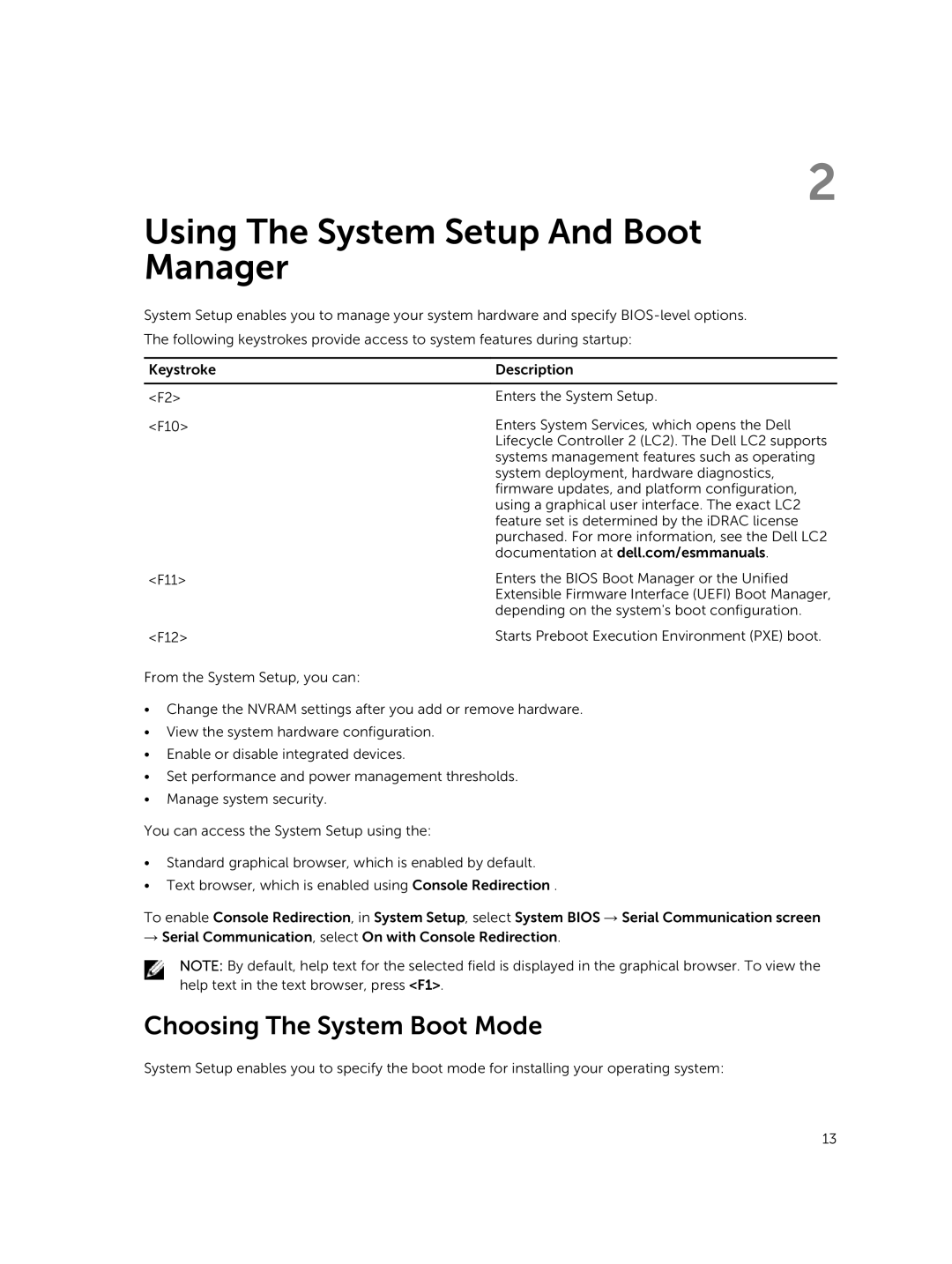
2
Using The System Setup And Boot Manager
System Setup enables you to manage your system hardware and specify
Keystroke | Description |
|
|
<F2> | Enters the System Setup. |
<F10> | Enters System Services, which opens the Dell |
| Lifecycle Controller 2 (LC2). The Dell LC2 supports |
| systems management features such as operating |
| system deployment, hardware diagnostics, |
| firmware updates, and platform configuration, |
| using a graphical user interface. The exact LC2 |
| feature set is determined by the iDRAC license |
| purchased. For more information, see the Dell LC2 |
| documentation at dell.com/esmmanuals. |
<F11> | Enters the BIOS Boot Manager or the Unified |
| Extensible Firmware Interface (UEFI) Boot Manager, |
| depending on the system's boot configuration. |
<F12>
From the System Setup, you can:
Starts Preboot Execution Environment (PXE) boot.
•Change the NVRAM settings after you add or remove hardware.
•View the system hardware configuration.
•Enable or disable integrated devices.
•Set performance and power management thresholds.
•Manage system security.
You can access the System Setup using the:
•Standard graphical browser, which is enabled by default.
•Text browser, which is enabled using Console Redirection .
To enable Console Redirection, in System Setup, select System BIOS → Serial Communication screen
→Serial Communication, select On with Console Redirection.
NOTE: By default, help text for the selected field is displayed in the graphical browser. To view the help text in the text browser, press <F1>.
Choosing The System Boot Mode
System Setup enables you to specify the boot mode for installing your operating system:
13
